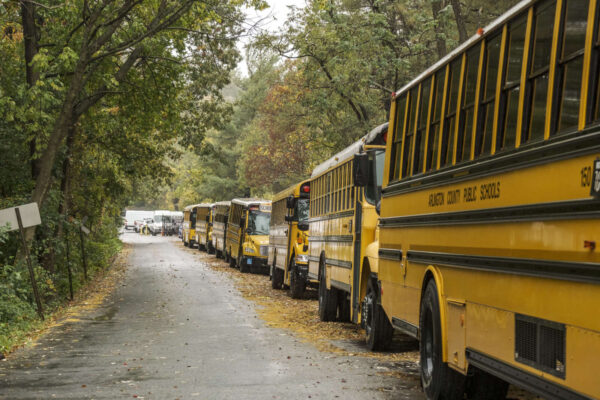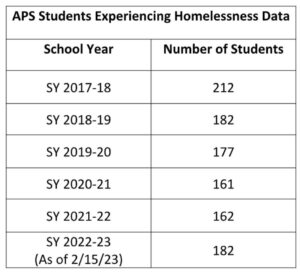
Arlington Public Schools is changing the way it verifies that students live within the county and will unenroll students who live outside its boundaries.
The new Home Address Confirmation Process is aimed at updating, improving and systematizing how APS keeps track of where students live. Individual schools used to conduct home checks and review proofs of residency, such as leases, as necessary when there were concerns about a family’s living situation.
Covid, however, showed APS that this created gaps in its record-keeping.
“During the first years of the COVID-19 pandemic, many of our families changed residences or were displaced entirely, and APS found that some of our information was out of date,” says APS spokesman Andrew Robinson. “This limited APS’ ability to accurately communicate with families.”
The new process involves confirming addresses for students in fifth and eighth grade, who will be promoted to the key transition years of sixth and ninth grades. Those whose addresses cannot be confirmed or who no longer live in Arlington will be withdrawn by mid-May for the upcoming 2023-24 school year, per a letter to families last week.
“We felt there was a need to standardize the process and ensure that it provided us with an opportunity to work with more of our families if their living situation was more complex,” Robinson tells ARLnow. “Moreover, we wanted to ensure that we were able to provide resources to our families that were now experiencing housing instability.”
Ultimately, he says, this provides a “fair and consistent process” for ensuring students live in Arlington and that APS has accurate information.
In the letter, the school system pledged to provide resources to assist families in enrolling in the correct school system. Families of students who are withdrawn, but later establish residency in Arlington, may re-enroll in APS.
This process will also help staff better identify students in complex living situations, such as students experiencing homelessness, and work with families to provide assistance and connect them with county and community services. The number of students experiencing homelessness during the 2022-23 school year is the same as during the 2018-19 school year, per data provided by APS. That number dropped during the early years of the pandemic, when an eviction moratorium was in place.

APS, like all public school systems, is federally required to count students living in a motel or hotel, moving frequently or living “doubled up” with relatives and friends as experiencing homelessness. This definition, enshrined in the McKinney-Vento Act, is more expansive than the one used by the county and the U.S. Dept. of Housing and Urban Development.
Recent reporting in Georgia describes how this gap means schools are supporting children who don’t qualify for federal assistance because they have a roof over their heads — even if that roof belongs to a hotel or motel or is shared with a second family.
In these situations, APS staff members will visit families at home to learn more about their specific needs and how the school system can assist.
“APS can work to ensure they can stay in their home school, even if their temporary address changes,” Robinson said. “Children and youth experiencing homelessness also have a right to immediate enrollment in APS when residing in Arlington.”
Students experiencing homelessness have a right to transportation to school, whether by school bus, public transportation, and in some cases via taxi service. They also automatically qualify for free meals and may receive after-school tutoring, Robinson said.
“Even if a family is not identified as experiencing homelessness, but is in another complex living scenario, APS can work to ensure that the student receives counseling support in school, or refer the student and family to additional services outside of the school depending on need, such as assistance with childcare, housing, clothing, or food,” he said.
The HACP letter specified APS is not requesting documents confirming U.S. citizenship, such as social security information. It adds that it won’t report any information to other organizations, leasing companies, government bodies or housing authorities.

